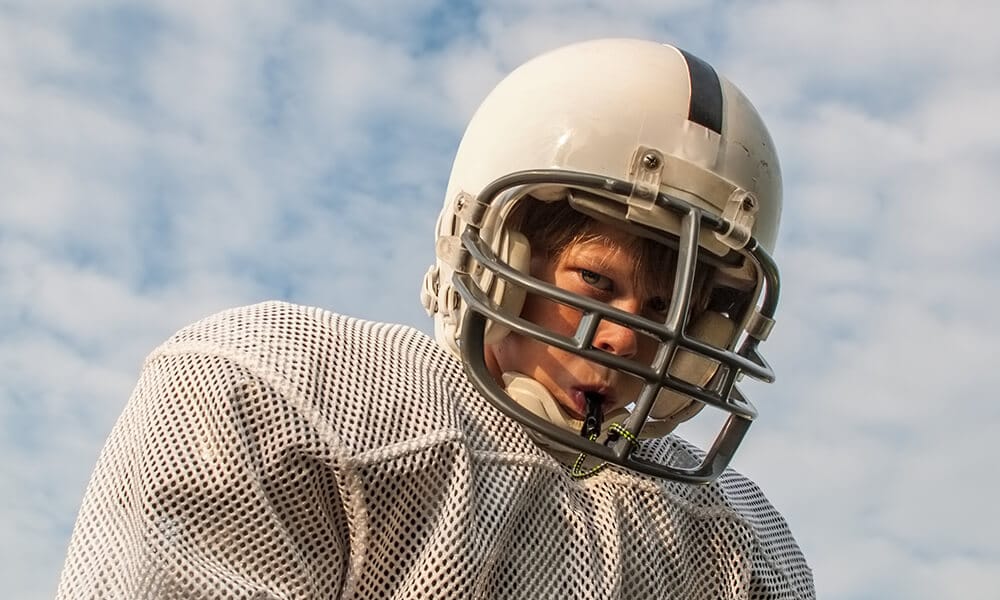Watch your mouth: The importance of mouth guards in sports
Young athletes need the right equipment to compete at the top of their game, and that includes a mouth guard. Mouth guards are an important way to protect your child’s teeth.
Mouth guards are usually not mandatory for athletes. Many people think they can outgrow the need for mouth protection. That’s not true. Mouth guards are the most effective way to prevent dental injuries. Teach kids the importance of mouth guards from an early age to develop safe habits throughout their athletic career. Work with your child’s coach to encourage all players to wear mouth protection. Both boys and girls should be wearing mouth guards. Sometimes there’s a gender bias because of the misconception that girls are less aggressive. Female athletes are also at risk for dental injuries from high-contact sports.
Types of mouth guards
Sports related dental injuries can be prevented with a properly fitted mouth guard. Mouth guards are available ready-made, mouth-formed or custom-made. Ready-made mouth guards are purchased pre-formed and are inexpensive compared to other options. The downside to these mouth guards is that they won’t fit as well as other options, which can cause difficulty breathing during athletic activity. Mouth-formed mouth guards come in a pre-formed shape that you customize to your child’s mouth. The mouth guard is boiled in hot water, then the child bites on the soft plastic, and the device forms to his or her teeth. At Lincoln Pediatric Dentistry, we strongly recommend a mouth-formed mouth guard called CustMbite. CustMbite products are the only ADA approved mouth-formed mouth guards. These guards come with their own fitting instructions that your dentist will send home with you. Custom-made mouth guards can also be made by a dental professional who completely customizes the device to protect your child’s teeth. However, this is not always a good option for changing mouths in children and young adults. It may provide great protection, but it’s the most expensive option.
Mouth guards typically only cover the top teeth. They should have a snug and firm fit but still allow for breathing and talking. Make sure your child’s mouth guard is cleaned regularly and is durable enough to handle the action.

What sports need mouth guards?
The American Dental Association urges athletes to wear mouth guards when participating in acrobatics, basketball, boxing, field hockey, football, gymnastics, handball, ice hockey, lacrosse, martial arts, racquetball, roller hockey, rugby, shot putting, skateboarding, skiing, skydiving, soccer, squash, surfing, volleyball, water polo, weightlifting, and wrestling. Other lists include baseball and softball, while some dentists recommend mouth protection for all sports. Mouth guards should be worn for the sports on this list, whether they’re competitive or recreational. Make sure to wear a mouth guard during practices too.
Sports-related dental injuries
Dental injuries are divided into four categories: fracture, avulsion, intrusion, and luxation. Fractures include root fractures and broken or chipped teeth. If the entire tooth is knocked out, it’s called an avulsion. If the tooth is pushed up into the gums, it’s called intrusion. Luxation is when the tooth is still in its socket, but it’s in the wrong position. In the event of a tooth injury, the child should be removed from the game. Do not let your child finish the sporting event because time is crucial. For the best results, call Lincoln Pediatric Dentistry right away to confirm how soon your child should be seen by a dentist.




